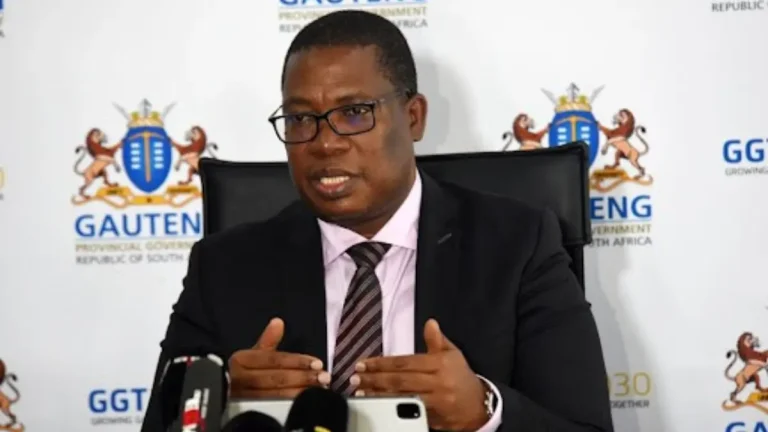With the G20 Summit set to bring world leaders to Gauteng this November, Premier Panyaza Lesufi unveiled the province’s emergency medical services (EMS) readiness plan in Midrand. The showcase at the Emergency Communication Centre (ECC) was more than a formality — it was a statement that Gauteng intends to host world-class events with efficiency and precision.
Thank you for reading this post, don't forget to subscribe!ALSO READ: Dada Morero Calls on G20 Leaders to Back Gauteng’s Urban Development
A Strategic Test for Gauteng
Hosting the G20 Summit is as much a test of Gauteng’s ability to safeguard thousands of delegates and residents as it is about speeches and policy agreements. Premier Lesufi framed it as “an opportunity for Gauteng to demonstrate global leadership in safety, healthcare, and emergency response.”
The ECC, Gauteng EMS’s nerve centre, now operates with a live digital dashboard that tracks emergency calls, ambulance dispatches, hospital diversions, and available resources in real time. During the summit, that level of data-driven coordination could mean the difference between seamless service and chaos.
The Scale of EMS Preparedness
The Gauteng Department of Health will roll out more than 500 emergency vehicles per shift. The fleet includes:
- ICU ambulances for critically ill patients.
- Specialised obstetrics ambulances for maternal and neonatal emergencies.
- Rescue vehicles for crashes and structural incidents.
- A disaster response bus designed for mass-casualty situations.
Forensic Pathology Services has deployed 65 vehicles to handle fatalities with speed and dignity if the need arises.
MEC for Health and Wellness Nomantu Nkomo-Ralehoko praised the effort: “Our emergency teams are ready, our systems are responsive, and our health infrastructure is primed to support this global event.”
Onsite Medical Support for Delegates
At the main G20 venue, Gauteng will set up a fully equipped medical centre staffed with experienced clinicians. The centre will handle everything from dehydration and allergies to life-threatening crises requiring rapid transfer to nearby hospitals.
Officials stressed the facility is not just for show but a working part of the summit’s emergency system.
Why This Matters for Residents
The G20 spotlight brings upgrades that will remain after the summit — new vehicles, digital coordination, and strengthened hospital systems. For Gauteng residents long frustrated by delayed ambulances and equipment shortages, the improvements represent more than promises on paper.
Healthcare analysts argue that big events often accelerate investment. “If we can achieve this level of readiness for the G20, citizens have every right to expect the same service in their daily lives,” said a Johannesburg-based analyst.
Balancing Prestige and Practicality
Johannesburg still faces chronic challenges — broken traffic lights, intermittent water supply, and fragile infrastructure. Critics warn against quick, cosmetic fixes for international visitors while deeper issues remain unresolved.
Lesufi countered that his so-called “Bomb Squad” task teams are focused on both immediate summit readiness and long-term upgrades. “What we do for G20 must outlast the summit. This is about achieving real, lasting gains for our residents,” he said.
G20 as a Platform for Innovation
The summit also allows Gauteng to showcase healthcare innovation. From digital dashboards to disaster-ready units, the province’s EMS wants to prove it can match international standards in crisis coordination.
MEC Nkomo-Ralehoko closed the Midrand event with confidence: “We are ready to welcome the world, and in doing so, we are building a safer and healthier Gauteng for our people.”
From Summit to Society
The G20 will run for only a few days, but its investments must endure. Gauteng’s EMS showcase demonstrates what happens when political will, resources, and technology align.
Keeping the Momentum Beyond the G20
- Save EMS hotlines and know how to report emergencies quickly.
- Push leaders to maintain this standard of readiness after November.
- Back community projects that strengthen emergency response where you live.
Because world-class emergency services should not exist only for summits — they should be an everyday right for every Gautenger.




